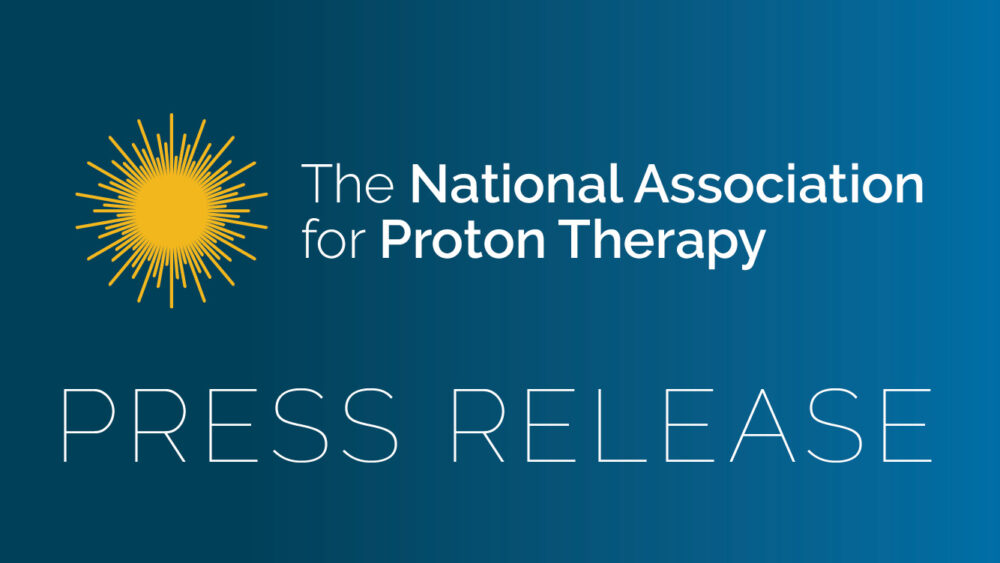NAPT NEWS
For Immediate Release:
January 18, 2024 – The National Association for Proton Therapy (NAPT), the nation’s leading organization dedicated to increasing patient access to one of the most advanced cancer treatments, commends CMS for ensuring seniors have timely access to medical care, especially advanced cancer treatments, through the Advancing Interoperability and Improving Prior Authorization Processes (e-PA) Rule.
The final rule requires that beginning in 2026, Medicare Advantage (MA) plans must convey PA determinations within 72 hours for expedited requests and seven days for standard requests. MA plans must also detail a specific reason for denying a PA appeal and report PA metrics as part of new transparency and reporting requirements.
“For Medicare beneficiaries who need proton therapy and other advanced cancer treatments, prior authorizations create a burdensome process that often delays life-saving treatment,” said NAPT Executive Director Jennifer Maggiore. “This new rule puts payors on notice that CMS is serious about removing barriers to care and sparing patients the frustrating and potentially harmful experience of waiting days or weeks for a coverage decision.”
According to data released by NAPT, the burden of prior authorizations is steadily increasing among proton therapy centers. In a 2022 survey, it was revealed that 64 percent of patients referred for proton therapy experienced an average wait time of more than five days for prior authorization requests, a notable rise from 48.1 percent in 2021. In addition, 22 percent of these patients faced an average wait time of over 11 days, up from 14.7 percent in the previous year. These delays can be a matter of life and death, as evidenced by a 2019 Cleveland Clinic study that linked each week of treatment delay to a 1.2-3.2 percent increased risk of death among cancer patients.
In a recent survey conducted by the American Society of Clinical Oncology (ASCO), their members reported that a majority of their patients have experienced harm due to prior authorization processes with 96% reporting delays in treatment and 94% of patients forced to receive second-choice therapy. Another survey, in 2018 by the American Society for Radiation Oncology (ASTRO), found that 93 percent of radiation oncologists had encountered patient treatment delays due to prior authorizations, with 31 percent reporting delays lasting more than five days – equivalent to a full week of standard radiation treatment.
“The announcement by CMS represents a positive step in the direction of streamlining the prior authorization process,” said Dr. Charles Simone, Chief Medical Officer of the New York Proton Center. “While I greatly commend this advancement, it is important to recognize the existing gaps that necessitate further attention. It is crucial to emphasize the significance of ensuring all patients have access to timely prior authorization processes. The ultimate objective remains a streamlined process that unequivocally prioritizes access to cancer care without undue delays.”
CLICK HERE for more information about insurance delays creating barriers to cancer care.
# # #
The National Association for Proton Therapy (NAPT) is an independent nonprofit organization founded in 1990 to educate and increase awareness about the clinical benefits of proton therapy. Its members include 47 of the nation’s leading cancer centers, many of which are NCI-designated comprehensive cancer centers and NCCN members. The mission of NAPT is to work collaboratively to raise public awareness of the clinical benefits of proton therapy, ensure patient choice and access to affordable proton therapy, and encourage cooperative research and innovation to advance the appropriate and cost-effective utilization of proton therapy.



